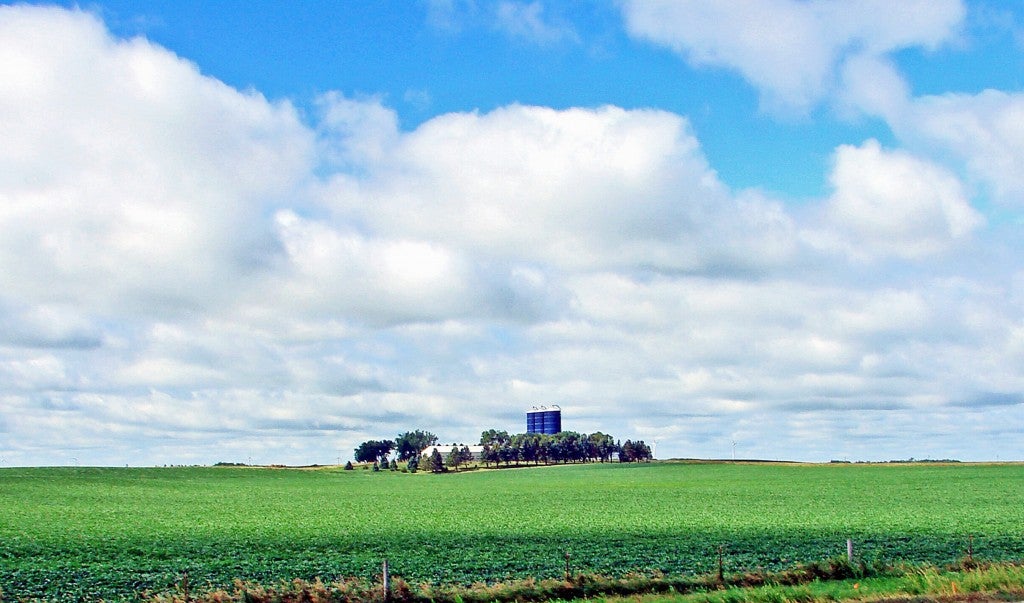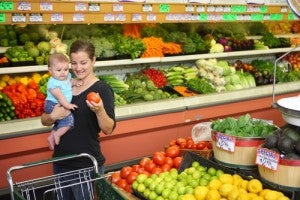
Photo credit: Don Graham
The results are in, so food companies take notice: American consumers are educating themselves on our food system, and they’re increasingly asking for sustainably produced foods. That’s a key takeaway from the International Food Information Council (IFIC) Foundation’s new report on consumer attitudes toward food.
It’s an exciting trend, since what we buy sends a signal across the supply chain for farmers to grow ingredients in ways that protect our natural resources, and for food companies to source sustainably grown products. Sustainably produced food also supports food security, which is essential to our continued prosperity.
Yet sustainably grown products are almost always more expensive to produce than their unsustainable counterparts, which is why many farmers require a premium for changing their production practices to reduce environmental impacts.
To improve air and water quality and protect farmers’ livelihoods, sustainability can’t just be a luxury. Sustainable food production has to become business as usual.
Here’s why we’re well on our way to meeting that goal.
Unprecedented consumer demand

Photo credit: USDA
IFIC’s survey reveals that in the past year, nearly 40 percent of consumers read an article on the U.S. food system, more than 15 percent watched a food-related movie or documentary and over 10 percent read a book on the topic. That education is changing minds and purchasing decisions. Nearly 60 percent of consumers changed their food purchasing decisions after consuming food-related media, and over half discussed their findings with family, friends and coworkers.
When making food purchases, consumers rank sustainability after taste, price, healthfulness and convenience. As a busy working parent trying to get dinner on the table every night, that doesn’t surprise me! But that doesn’t mean consumers don’t also value sustainability – over 70 percent think it’s important that ingredients are produced in a sustainable way. We want our sustainably produced cake, and we want to eat it too.
Sustainability is profitable
Farmers are increasingly realizing savings from improved farm management practices. Efficient precision fertilizer use can save farmers money without sacrificing yields, and a recent survey found that farmers who plant cover crops actually increase their grain crop yields. Other examples:
- Smithfield Foods is betting that its program to improve the sustainability of grain grown for feed will help the company purchase more grain locally, resulting in up to $10 in savings per hog.
- Unilever’s sustainable living brands, which include Hellmann’s efforts to improve the sustainability of soy procured for its oils, are growing 30 percent faster than the rest of the company’s business and delivered nearly half of total growth in 2015.
- Land O’Lakes just announced the creation of an entire business unit devoted to sustainability, inspired by ag retailer United Suppliers’ commitment to enroll 10 million acres of cropland in sustainable practices by 2020, through their SUSTAIN™ platform – the biggest commitment of any company to date.
Just the beginning
It’s hard to keep track of the many food sustainability efforts in the works, as conservation practices are becoming the norm in agriculture. As more and more food companies support farmers’ on the ground fertilizer efficiency and soil health efforts, we’ll have increasing evidence to make the business case for sustainability.
Related:
Animal feed is at the heart of grain of grain sustainability >>
5 Steps to move food production from transparency to sustainability >>
Why the food movement is alive and well >>









